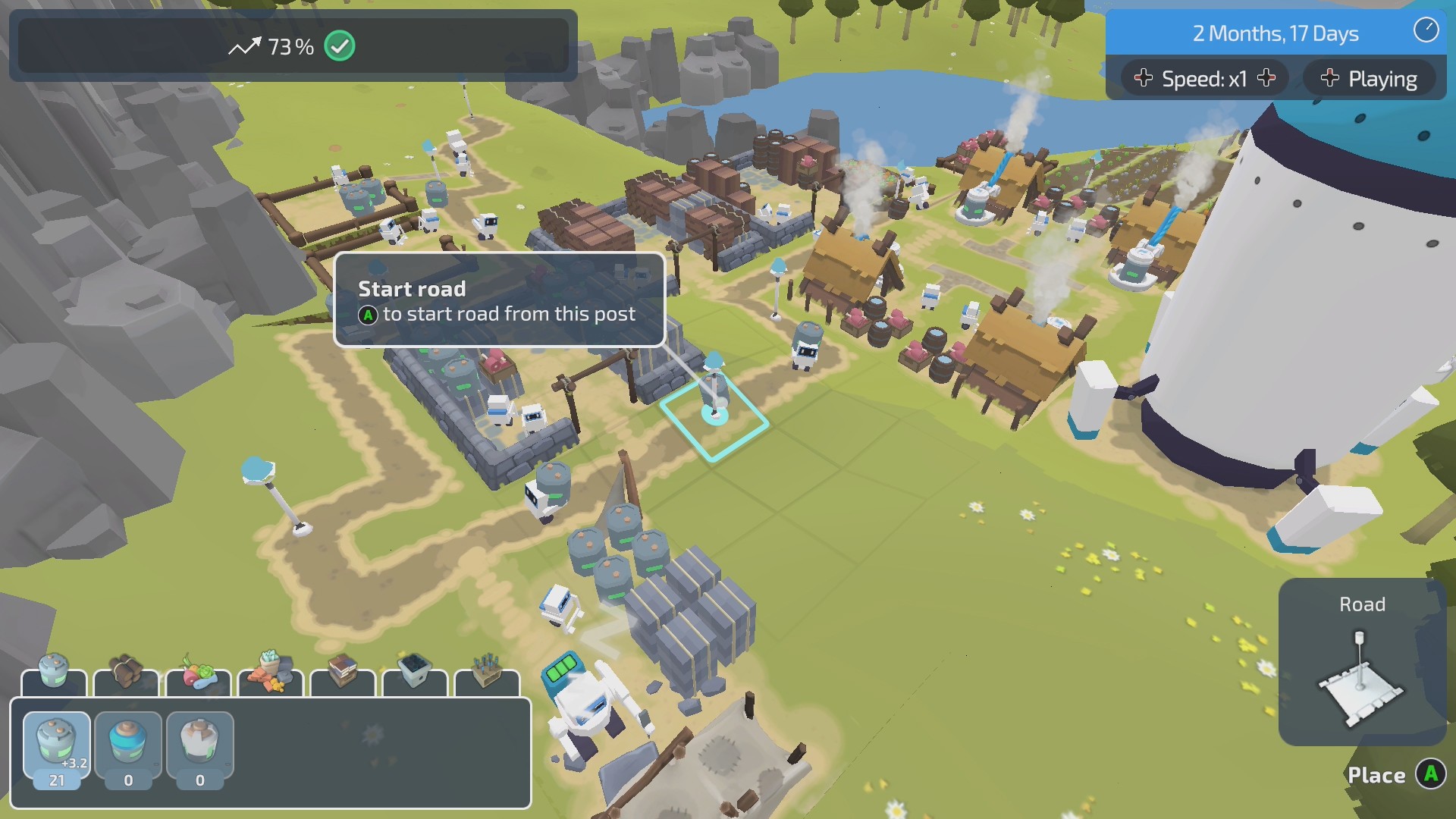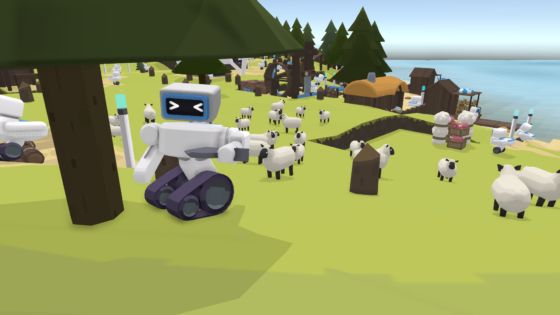
With the exception of the market, a Steward cannot end up in the same place he started from. Two or more players can be on the same spot at the same time, even though there is a small fee to be paid to the players already there. Each player controls a Steward, a pawn that starts from the Market, walks to other places and takes the appropriate actions. This depicts the options that a player has, like the Librarian, the Builder, the Developer etc. In contrast to Agricola (or other worker placement games) where a board depicts fixed actions that can be undertaken, in The Colonists a Game Board is initially created at random and gradually expanded during the game. At the end of a year the starting player changes, new places are added (or replace other tiles, as the case might be), colonists get redistributed among your Residences and other Buildings, Sustenance Buildings generate goods and your Workers must be sustained, while your Money and Production Buildings also generate goods. In each round, a player gets to play three turns. Each era last for 5 years, each of which consists of two rounds. The game can last anywhere from era I to IV, starting from whichever era you like and end accordingly. A player's value at the end of the game will be determined by the dollar values of his Buildings, Embassies and permanent Improvements, his money on the Toolbox as well as his gainfully employed workers (not the slacking ones this is a protestant-ethic colony after all). The objective is to collect the most money at the designated end of the game, usually the end of a particular era. Gameplay: Each player controls a colony (a plot of land in many ways resembling the one in Agricola) that he tries to develop. I trust it is no coincidence that the second longest belonged to Agricola Revised Edition, another Mayfair Games title. This is the longest list of contents I have ever seen.

#The colonists game strategy free
In addition to the three rulebooks (the 20-page Introductory Rule Book, the 24-page Main Rule Book and the 12-page Appendix) that can be also found on the publisher's website free of charge, the game contains the following: 62 tiles (13 Starting Places, 12 Era I, 12 Era II, 12 Era III, 13 Era IV), 202 Buildings (20 Factory/Casino, 25 Forester's House/Hollow, 20 Hunting Lodge/Hunting Grounds, 20 Pub/Theater, 24 Flat/Apartment, 16 House/Community Hall, 32 Farm/Estate, 12 Tailor Shop/Textile Map, 8 Boarding House, 4 Library, 4 Institute, 9 Iron Mine, 4 Stables, 4 Customs Office), 72 Embassies, 8 Warehouse extensions, 36 Storage Facilities (12 Sheds, 12 Houses and 12 Halls), 3 Markets, one Small Market, one Starting Player marker, 4 Basic Storage upgrades, 16 wooden Stewawrds (4 per colour), 3 wooden Special Ambassadors (Alchemist, altruist, Laborer), 120 Colonists (60 Farmers, 40 Citizens, 20 Merhants), one Round Indicator, 40 Tools, (20 per tool), 55 Dollars in denominations of one, five and twenty five, 30 Bricks, 20 Coals, 30 Robes, 90 Wood, 50 Clay, 40 Ore, 30 Planks, 20 Iron, 50 Food, 140 Improvements (35 per era), 28 Market cards (7 per era), 4 Balance cards, 4 Era cards (one per era), one Round card, 3 Overview cards, 4 two-sided Community Boards, 9 Colony Overviews and one scoring pad. What you get: Your USD 90 or equivalent will buy you The Colonists, a one to four player resource management, city building and worker movement game (as the game itself puts it, 'worker placement is so yesterday') that can last anything from 30 minutes to four hours. You can even save longer sessions and continue them later.' You choose the length and complexity of the game. The whole experience over multiple hours, or rather a quick 60-minute session playing a single era? No problem. The Colonists is a strategy and development game that you can adapt to your personal taste. Farmers will turn into citizens which in turn can become successful merchants.Įstablish relations with distant colonies by building embassies in your community and your community will be thriving in no time! With time, duties will become more complex, which is why you should educate your colonists so they are ready for the tasks at hand. This will require a lot of resources so let your steward or your colonists collect them. Therefore, you should also build buildings, where the colonists of your community can work. Recruiting colonists is not enough you have to create jobs for them as well. To show the Emperor that his trust is not in vain, you send out your trusted steward into the countryside, instructing him to build residences to attract new colonists into your community.

The Emperor entrusted you with the task to establish a glorious and prosperous community.

Review Summary: Unless you decide to build a real city, building a city does not get more detailed than this.īlurb from the publisher: 'The Colonists: the epic strategy game!


 0 kommentar(er)
0 kommentar(er)
